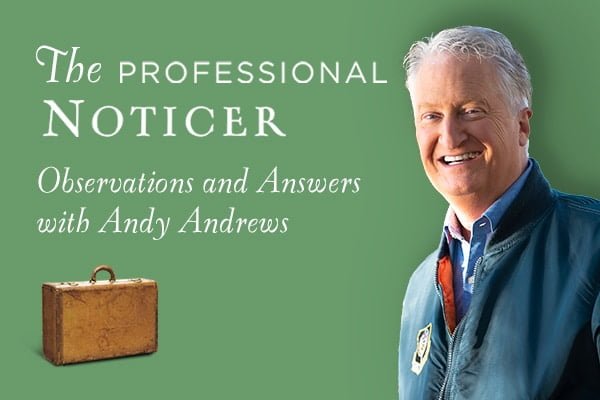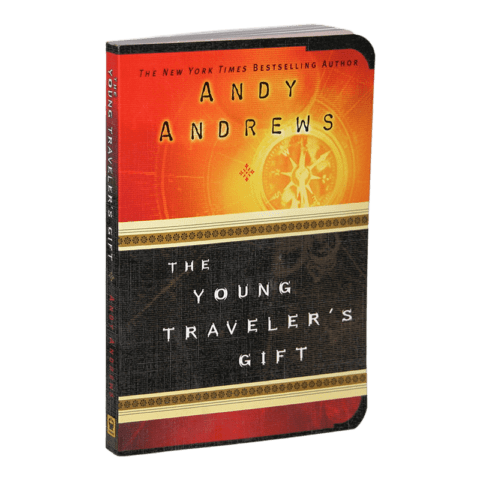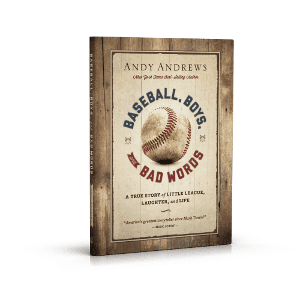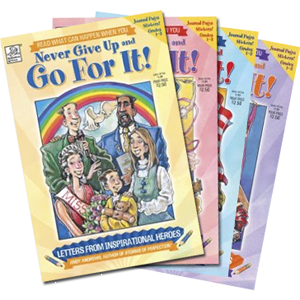People often ask what it was like to receive 51 rejection letters when I was trying to get my first novel, The Traveler’s Gift, published. Well, actually writing the book was the hardest part, but the rejection stage wasn’t all that pleasant, either!
 Rejection is something we all experience again and again in our lives. Regardless of factors like how much money we make, where we’re from, who our parents are…it is a fact that most of us will experience a hefty dose of rejection during our lives. Curiously, however, it is not the amount of rejection we experience that determines our successes or failures; it’s how we respond to rejection that determines them!
Rejection is something we all experience again and again in our lives. Regardless of factors like how much money we make, where we’re from, who our parents are…it is a fact that most of us will experience a hefty dose of rejection during our lives. Curiously, however, it is not the amount of rejection we experience that determines our successes or failures; it’s how we respond to rejection that determines them!
We have a tendency to downplay a person’s path to success, don’t we? Michael Jordan was so good at basketball because he was born with natural athletic ability. Josh Groban has become a huge star because he was born with an incredible voice. So-and-so down the road has such a successful business because their daddy did all the hard work for them.
Take a minute and think back over your own life to this point. What would you say is the biggest thing you’ve accomplished? What is the thing you’ve done that makes you swell with pride? It might be a child that you raised or mentored. It might be a healthy marriage. It might be a job you landed, or some type of business success. The possibilities are endless, and they absolutely do not need to have anything to do with money or recognition.
Now that you’re picturing that one incredible feat, ask yourself this: Did it come easy? Was it handed to you? Or was it the product of time after time—even when you felt like giving up?
Listen, I wasn’t even the best writer in my senior English class. I never earned a college degree. I don’t have any talents that most people would consider “cool.”
I got The Traveler’s Gift published because of persistence.
If you’re going through a struggle right now, know that there is light at the end of the tunnel. But also know that the majority of the tunnel is long, dark, and scary. It could be that the only certainty available to you at the moment is the fact that you will persist without exception…that you will find a way where there is no way.
 An unintended benefit of rejection is that, once you’ve made it through, it will actually be encouraging when you look back on the experience! In fact, I’ve actually had two of the harsher rejection letters I received for The Traveler’s Gift framed and placed on a wall in my office. Now, they are not there to be a kind of “na-na-na-na-na” thing toward everyone who rejected the manuscript. Instead, they are there to remind me to keep persisting when new rejections arise. And yes, they still do. That’s right…they never stop. Believe it or not, most of the books I’ve written since The Traveler’s Gift have also been rejected! Including The Noticer and The Butterfly Effect.
An unintended benefit of rejection is that, once you’ve made it through, it will actually be encouraging when you look back on the experience! In fact, I’ve actually had two of the harsher rejection letters I received for The Traveler’s Gift framed and placed on a wall in my office. Now, they are not there to be a kind of “na-na-na-na-na” thing toward everyone who rejected the manuscript. Instead, they are there to remind me to keep persisting when new rejections arise. And yes, they still do. That’s right…they never stop. Believe it or not, most of the books I’ve written since The Traveler’s Gift have also been rejected! Including The Noticer and The Butterfly Effect.
So for everyone out there currently going through rejection of one type or another—be encouraged. Keep going! You have the ability to win.
And if you need a little extra encouragement, I’ve typed out what each of the framed rejection letters I received say. They are addressed to a person named David because that was the name of the literary agent who was pitching the manuscript at the time. Hopefully, if you enjoyed the book, these letters won’t sway your opinion. Ha!
Dear David,
I’ve had a chance to review THE TRAVELER’S GIFT and am afraid I’m going to pass on it.
I found the story a bit melodramatic and lacking in concrete plot and characterization. While the main character, David Ponder, gets advice from one great man to the next (Anne Frank being the sole female exception), we never actually get to see him put the advise to good use. Also, I didn’t feel the characters he describes come to life.
Many thanks for letting me have a look at this. I’m sorry not to be more enthusiastic.
Dear David,
I appreciate your sending The Traveler’s Gift by Andy Andrew to me—and all the backup material.
I have read the manuscript and do not feel that the book works for Nelson. It’s a rough takeoff on the formula of Dickens’ Christmas Carol, with the addition of the success principles, in a way it’s neither fish nor fowl.
And writing good fiction takes a lot of effort—and talent.








